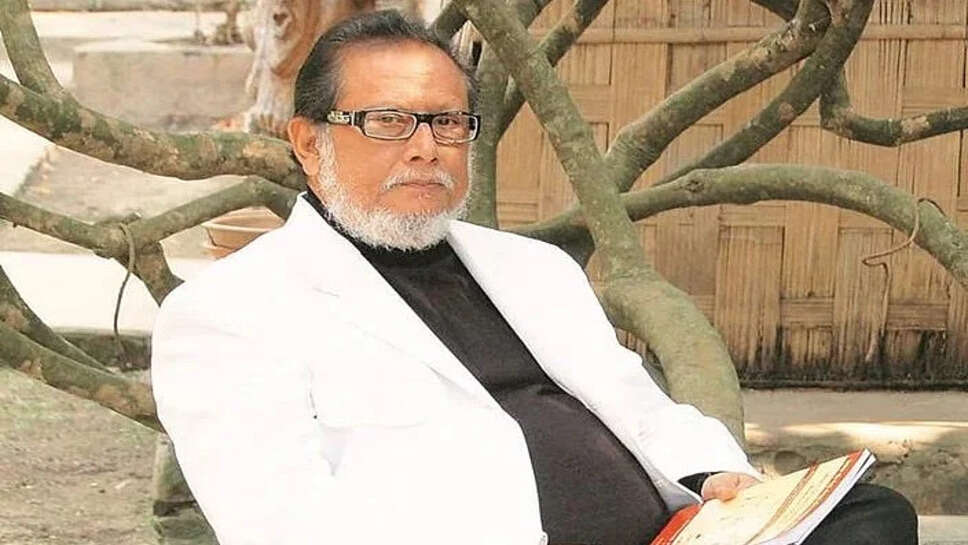Ratan Thiyam: Theatre’s Philosopher Who Redefined Indian Stagecraft

In a country brimming with colourful legends, larger-than-life mythologies, and melodramatic stagecraft, Ratan Thiyam stood apart as a dramatist who believed in theatre not merely as entertainment, but as a spiritual and philosophical experience. For over five decades, the Manipur-born artist has used theatre as a tool of introspection and resistance, compelling audiences to re-examine notions of morality, identity, conflict, and even the very nature of storytelling.
Known for his richly layered productions, meditative pace, and fusion of classical Indian and modern dramaturgy, Thiyam challenged simplistic binaries—especially the archetype of the "hero" and "villain"—with a sense of both rebellion and reverence.
🛕 Early Life and Philosophical Roots
Born in 1948 in Imphal, Manipur, Ratan Thiyam was drawn early to literature, philosophy, and the arts. After studying at the National School of Drama (NSD) under the legendary Ebrahim Alkazi, he would go on to forge his own path—one that was more introspective, spiritual, and steeped in Eastern aesthetics than Western modernism.
He founded the Chorus Repertory Theatre in Imphal in 1976, turning it into not just a performance space but a creative laboratory. Situated away from India’s cultural capitals like Delhi or Mumbai, this decision itself was a political act—signalling that regional identity could birth global-quality art.
🎭 Theatre Beyond Performance
For Thiyam, the stage was not merely a platform—it was a battlefield of conscience, a sanctuary of meditation, and a canvas for inner transformation.
He was particularly critical of mainstream narratives that glorified war heroes without questioning the violence they enacted, or vilified characters based on moral absolutism. His version of theatre blurs the lines between good and evil, offering stories where the hero is not always noble, and the villain is not always wrong.
In his adaptation of the Mahabharata, titled Urubhangam (The Broken Thigh), he presents the Kaurava prince Duryodhana not as a villain but as a tragic, broken man, giving him grace and dignity in defeat. Through this, Thiyam questions the very fabric of our myth-making: Why are some stories told and others silenced?
⚔️ Political Commentary and Cultural Resistance
While never overtly activist in the modern sense, Thiyam’s theatre has always been deeply political. Many of his works are veiled critiques of militarization, state violence, and the erasure of cultural identity—particularly from the lens of Northeast India, a region often marginalized in the national discourse.
Plays like Wang Khomba and When We Dead Awaken confront the loss of humanity in pursuit of power. His treatment of war and peace resonates with contemporary conflicts—not through sensationalism, but through poetic anguish and philosophical questioning.
Thiyam has also spoken out on the commodification of art and the tendency of modern theatre to chase applause instead of truth. In a world where content is produced for mass consumption, he has remained committed to ritualistic theatre—theatre that elevates both the performer and the audience.
🧘♂️ Aesthetic Signatures: Silence, Music, and Stillness
If you’ve ever watched a Ratan Thiyam play, what strikes you first is not the action—but the space between actions. Long silences, symbolic movements, stylized body language, and minimalist dialogue dominate his productions. This is theatre that asks the viewer to slow down, to reflect, to sit with discomfort.
The influence of Natya Shastra, Manipuri dance, Zen Buddhism, and Greek tragedy can be seen in his visual grammar. Often, he uses monochromatic lighting, percussion-driven soundscapes, and choreographed sequences to convey emotional states instead of plot points.
In his plays, time seems to bend—making room for contemplation rather than just narrative progression.
🧠 Redefining the Hero and Villain
At the core of Thiyam’s philosophy lies a simple yet radical question: “Who decides who the hero is?”
This question recurs across his body of work:
-
In Urubhangam, Duryodhana is not punished but mourned.
-
In Uttar-Priyadarshi, a play on Emperor Ashoka, the focus is not on conquest but on guilt, redemption, and internal awakening.
-
In Chakravyuha, the story of Abhimanyu is retold not as a tragic martyrdom but as a meditation on youthful sacrifice, systemic betrayal, and moral grey zones.
He forces audiences to consider that the hero-villain binary is an artificial lens, one that often serves power structures rather than truth. Real life, he argues, is far more ambiguous—and so should be its representation on stage.
🌏 Global Acclaim, Local Roots
Despite his experimental approach, Ratan Thiyam’s work has been celebrated across the world—from Tokyo to Paris, from Seoul to New York. Yet, he has remained firmly anchored in Imphal, choosing to train young actors from the region and uplift Manipuri language, themes, and traditions.
In 1987, he was appointed as the director of NSD, where he briefly influenced India’s next generation of actors and directors before returning to his beloved Chorus Repertory.
He has been honoured with the Padma Shri, the Sangeet Natak Akademi Award, and the Tagore Fellowship, among many others.
🧭 Legacy and Influence
Ratan Thiyam’s impact goes beyond theatre. He has influenced:
-
Political discourse by reclaiming the Northeast’s narrative space.
-
Artistic pedagogy, inspiring generations to view theatre as a spiritual pursuit, not merely a career.
-
Ethical storytelling, where human complexity is prioritized over formulaic tropes.
Today, his alumni include award-winning playwrights, directors, and cultural thinkers who carry forward his emphasis on introspection, symbolism, and cultural rootedness.
🕯️ A Torchbearer of Truth
In an age of instant gratification and binary thinking, Ratan Thiyam remains a torchbearer of nuance and silence. He reminds us that real heroes are not those who conquer kingdoms but those who conquer their own illusions.
And real villains? Perhaps they are not born, but made—by systems, by prejudice, by the stories we choose to tell and retell.
In forcing us to confront these questions, Thiyam has not only transformed Indian theatre—he has transformed how we see ourselves.
His theatre is not an escape from the world. It is an invitation to see the world more clearly.
.jpg)